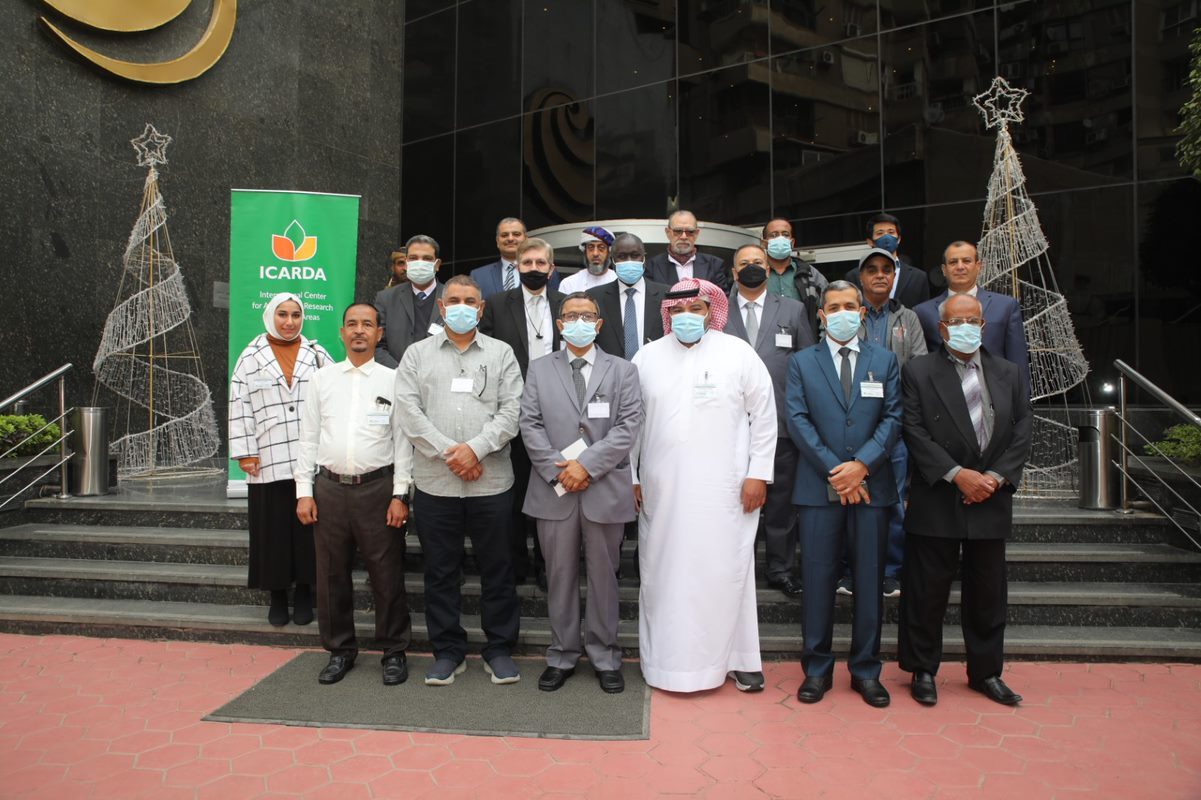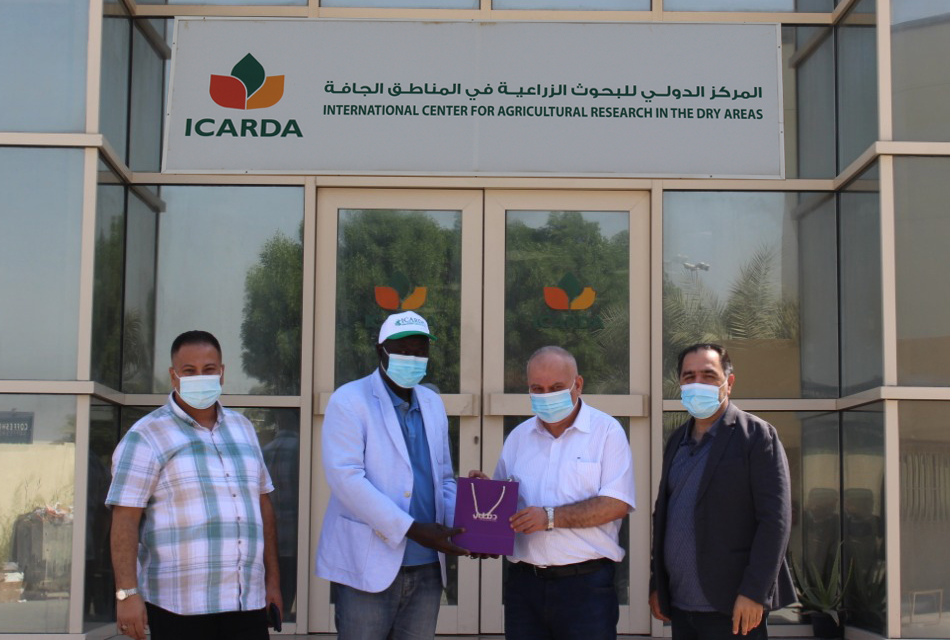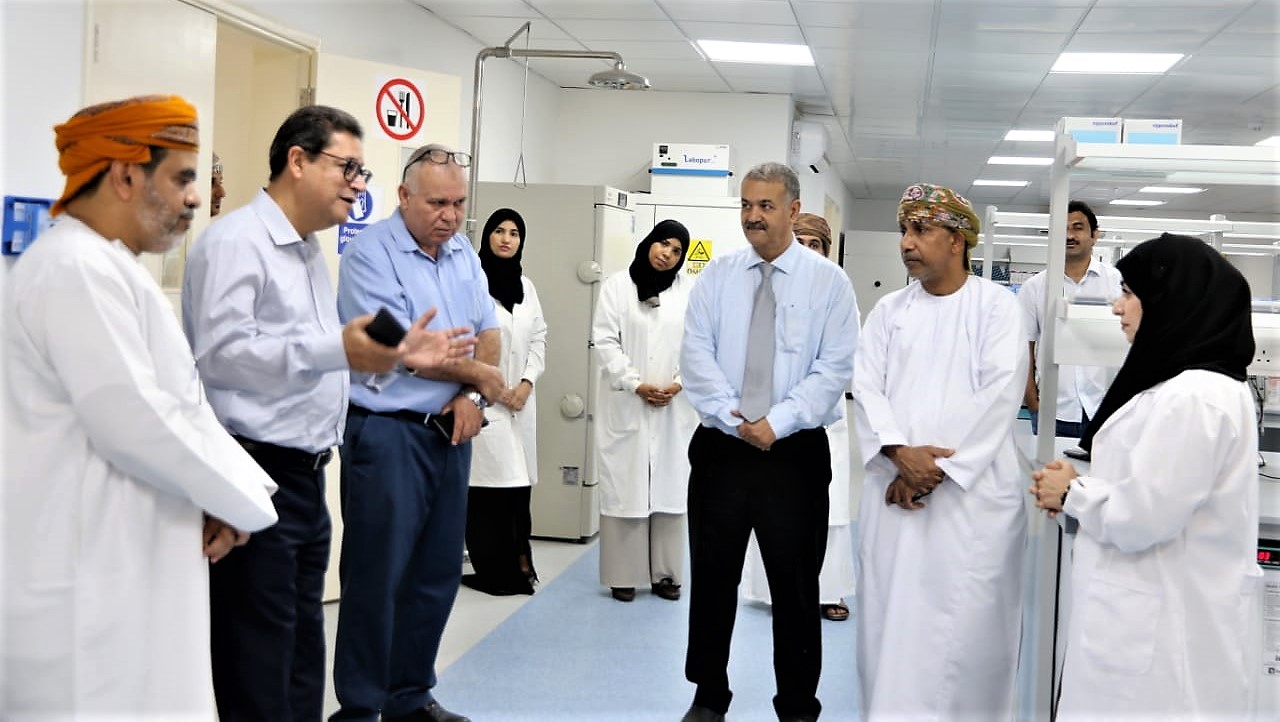Date palm: a strategic crop for the Arabian Peninsula

Date palm is a key commodity throughout the Arabian Peninsula. In addition to its nutritional value, the crop is also an important source of feed and fuel, and can be used as building material in the construction of houses.
In order to improve the region’s date palm production, ICARDA’s Arabian Peninsula Regional Program (APRP) has initiated a number of capacity strengthening events targeting engineers, extension agents, technicians, and farmers.
A field day training at the El Hamrania Research Station in the United Arab Emirates (UAE) introduced new date palm production techniques to staff from the country’s Ministry of Agriculture, including fertigation, post-harvest operations, and integrated pest management (IPM), a practical and environmentally-friendly approach to pest control that emphasizes the use of cultural and biological interventions, and only supports the targeted use of chemical interventions when alternative methods have been exhausted, costs are not excessive, and there is no threat to existing agro-ecosystems.
The training combined lectures and practical applications, including pollen handling and storage, and compared the advantages of various pollination methods such as liquid pollen suspension, dry pollination, and traditional hand pollination.
Moving forward, it is recommended that liquid pollination be applied early in the growing season and that further capacity strengthening be provided to equip practitioners with the necessary skills to effectively apply this methodology.
Another training course, held in Muscat, Oman, introduced the latest date palm pollination techniques and packaging procedures to employees of the Chamber of Commerce, Industry, and Agriculture, located in Lebanon. The course combined oral presentations and practical field days, and is the first in a series of capacity strengthening events to help develop Lebanon’s nascent date palm sector.
Finally, a trip to Bahrain provided an opportunity for APRP scientists to further promote sustainable date palm production. Pollination techniques and post-harvesting operations were shared at a conference attended by researchers, students, and engineers, and laboratory and field visits provided an opportunity to discuss protection strategies against date palm pests and appropriate date palm pollination and fertilization techniques.
For more information on ICARDA’s Arabian Peninsula Regional Program visit: http://www.icarda.org/arabian-peninsula-regional-program



